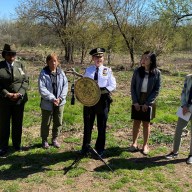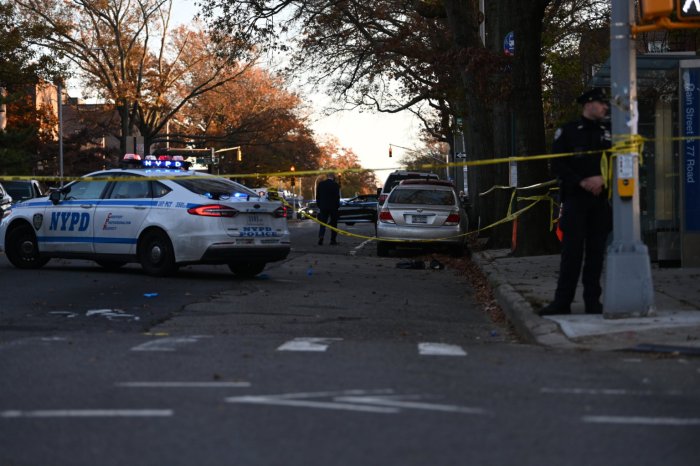By Helen Klein
Zoning may not be a sexy subject, but it sure can pack the house. Case in point: A standing-room-only crowd of Canarsie residents was on hand to listen to Department of Buildings Code and Zoning Specialist John Gallagher during the January meeting of the Friends United Block Association (FUBA). There was a good reason. The people who packed the meeting room at Temple Shaare Emeth, 6012 Farragut Road, had come to learn how and whether existing basement living space – much of which functions as independent rental apartments — could be legalized. The answer, according to Gallagher, is a definite maybe. For one thing, he said, a key is to establish whether the space is a basement or a cellar. If the living space is in a basement, in which more than half the space is above curb level, it may be able to be legalized. That is not possible, however, said Gallagher, if the living space is located in a cellar (where more than half of it is below curb level). “Even if you don’t have a separate dwelling unit, if you have a bedroom there, it’s illegal. You can use the space but sleeping is not permitted in a cellar,” Gallagher told the crowd. While the basement/cellar distinction is one factor that determines whether a living space can be legalized, there are others, cautioned Gallagher. For one thing, the space itself must be legally configured, said Gallagher, with rooms that have a minimum eight-foot ceiling height. Other minimum dimensions also would be applicable. And, there are zoning issues to take into account. The use of a basement for living space, Gallagher said, cannot increase the floor area of a building above what is allowable (which varies based on the size of the lot and the zoning that governs it). Adding an apartment also must not create a situation where the number of dwelling units exceeds the maximum number permitted in a building, based upon the zoning. Also, if a garage has been converted to living space, that garage cannot be necessary to provide off-street parking required by the zoning. Why all the regulations? The purpose of zoning, Gallagher stressed, “is to protect the neighborhood.” An increase in population above what is permitted and allowed for, strains city services in the area, reducing the quality-of-life. Even if illegal living space predated the current owner, Gallagher added, it is the current owner who is responsible for it. He or she must pay any fines that are assessed during the legalization process (generally four times the cost of the permit that would be required, Gallagher said), unless it can be proved that the work predates 1989. To determine if an illegal conversion can be legalized, homeowners should consult with a licensed architect, said Gallagher. Even if it is possible to legalize the space, there may be necessary changes, if the work has not been done according to code, he noted. “An architect,” Gallagher told the crowd, “will be able to tell you have to bring it up to code.” If that is not possible, he added, the only recourse may be to restore the space to its original use. Homeowners can bring general questions to DOB’s Brooklyn office, at 210 Joralemon Street, on Tuesday evenings, between 4 and 5:30 p.m.





























